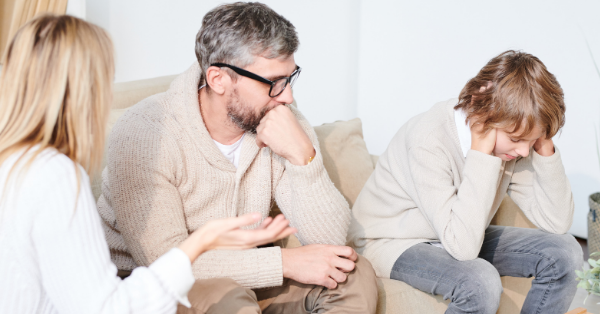Addictions impact more than just the person addicted. All addictions – substance-use disorders (e.g. alcoholism & drug abuse) and behavioral addictions (e.g. gambling disorder) – impact family, friends, co-workers, and others. Family involvement in addiction recovery can impact the outcome of a loved one’s recovery.

It is difficult as a family member to watch a loved one held captive in the grips of addiction. Observing the suffering and pain the addict experiences is almost unbearable. Knowing that the addicted person did not want this for themselves and neither did you, prompts loved ones to seek a remedy to assist and make the pain and suffering go away as the pain the loved one experiences grows too.
I know the addict is powerless over their addiction, but the family member experiences powerlessness as well. Family members seek to understand the addictive process, how the person becomes an addict or comes to this place in their lives, leaves many dumbfounded. From a place of pain and lack of understanding wanting the pain to go away, some even believe the addict has chosen this for themselves. Family members use a variety of tactics and methods to help and often there is no improvement.
So, what can you do if you are a family member impacted by someone who has an addiction?
The first and most important thing you can do is to recognize that the addiction has not only impacted the addicted person but you as well. Knowing this academically is just the first step. Examining how the addiction has impacted you as a loved one is not meant to blame the addicted person. It is merely to open yourself to the understanding that addictions powerfully, and often negatively, impact all that stand in the way between the addict and their addiction.
So often there is chaos that accompanies addiction. Chaos arises from the frenetic and scattered effort that both the addict and their loved ones put into either keeping the addiction going or various ways loved ones think they can control or stop it. Loved ones must step out of the chaos, when present. It is often accompanied by a sense of overwhelm to gain perspective and clarity. This is the second step.
Once you have created some space by stepping out of the chaos, and you have gained a better perspective, you begin to honestly sit with this awareness. This is step three. Awareness with clarity allows self-observation to come online, which is often skewed because all the attention has gone to the addict. As you continue to notice without judgment, a growing understanding of the problem rises without blaming yourself or the person addicted. Now, you may become aware that this problem is too big for you to handle alone, even if you are stone-cold sober or engage in a healthy lifestyle. YOU, the loved one needs support too! You may be enabling the addict by making excuses or justifying use and behavior in your attempt to understand and offer solutions to what you believe the problem is. What’s really going on is that you and your behavior have likely become part of the addictive cycle.
Realizing that you are part of the addictive cycle may provide you the continued incentive to seek support, independent of whether the addicted loved one does. There are many avenues to seeking support. Self-help groups are available such as Al anon and Gam anon. ACA (Adult Children of Alcoholics) and PALS (Parents of Addicted Loved one’s) are self-help groups that work with loved ones impacted by addiction. You may also check the national hotline for assistance at SAMSHA (Substance Abuse and Mental Health Services)
If your loved one does enter a treatment program for addiction recovery, be sure to inquire about a family recovery tract and family sessions. Many treatment centers offer this service.

Recent Comments